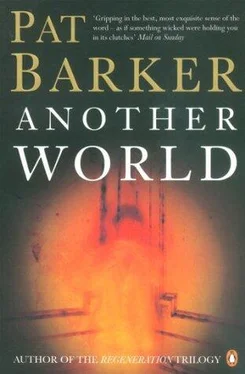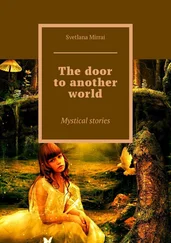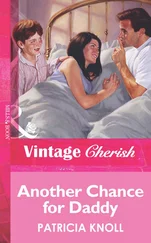Me mam never got over our Harry… Wrong one died, simple as that .
Perhaps it wasn’t ‘survivor’s guilt’ that made Geordie imagine his mother had rejected him. Perhaps it was true.
The time wagon travels backwards, pulling them away from the present. On either side figures slip past and vanish: an air-raid warden from the Blitz, an unemployed man in a cloth cap, a First World War officer, his arm raised, cheering, a lady in a crinoline, and so on until the wagon backs into the roar and crackle of flame, shouts, cries, a woman with a wounded baby in her arms, screaming. Leaving her behind, the wagon travels further back, then stops, turns, and moves forward into the light of Viking Jorvik.
Not only into the sights of a fifth-century village, but the sounds and smells as well. A little boy in the wagon behind says, ‘Ugh, Mummy, Viking poo,’ and everybody laughs.
Mum’s fascinated. Miranda’s fascinated. Gareth’s bored. Jasper’s bored too, but since he’s on Mum’s lap and sucking his thumb he doesn’t mind. Looking down, Gareth can see the bald patch where the nurse cut his hair off, and the little barbed-wire ridge of stitches. Everybody says he’s getting over the accident really well. And it was an accident. It’s fixed in Gareth’s mind now, what happened that afternoon, and it won’t change. The pebbles he threw will never grow back into stones. None of them will ever connect with Jasper’s head.
There comes a time when you’re watching somebody die when the sheer tedium of it overcomes you. How much longer, you catch yourself thinking, can this possibly go on? And then you’re overwhelmed by guilt because every moment should be treasured.
Sitting on a hard chair in Geordie’s room, watching him sleep with open toothless mouth and thin lids stretched across constantly mobile eyes, Nick catches himself thinking, I’ll have a bottle of wine this evening. I wonder if there’s any cricket on, and then he’s ashamed that, even for a second, he could have taken his thoughts away from the dying man. This is one of the last few days, he thinks. The last time we’ll ever have together. He tries to whip his tired brain into feeling the seriousness of the events, the preciousness of the last few grains of sand, but his thoughts run into cliché. The fact is that birth and death both go on too long for those who watch beside the bed. The appropriate emotions dry up. You stretch, scratch, ease sticky thighs away from plastic seats, plan forays into the canteen or the kitchen for reviving cups of tea, the chance of a chat. When Frieda comes back with the shopping they giggle in the kitchen like a couple of school kids. Nick’s persuaded Frieda to go home for the rest of the day and have a lie down, though she insists on coming back for the night. They each have an unspoken sense that it won’t be long. ‘I’ll just look in on him before I go,’ she says. ‘I’ll not wake him.’
But Geordie feels her presence, the outdoor air on her clothes, and forces his eyes open. ‘Hello, Dad,’ she says, moving further up the bed. He peers up at her, moistens his dry lips, and says, ‘How long does it take for a chap to die?’ And immediately Nick’s more ashamed than ever, for he sees that Geordie’s being spared nothing of all this, not even the tedium. Rather he feels it worse than they do, because for him there’s no escape.
After Frieda goes, Nick sits in Geordie’s room and tries to make him talk about the past, poking him between the bars of his inertia, as you’d try to rouse a moribund animal. Reminding him of his memories is one way of restoring him, of shoring up the crumbling self. He feeds his own stories back to him. ‘Tell us about the time…’ ‘Do you remember when…?’
There’s little response. Either he’s given up entirely or all the memories have contracted into a single memory that he’s not prepared to speak about. ‘Tell me about Harry,’ Nick wants to say, but he says nothing. Instead he watches the brown-spotted hand crawl across the counterpane, all that’s left of those midnight patrols. Geordie’s too weak now to leave the house. He can’t last long, Nick thinks, watching him sink back into sleep.
As you leave the exhibition there’s a video screen. Miranda stops in front of it. In the Viking village she’d noticed a man on a barrel gutting fish.
The video tells the story of how they made his face. You uncover a skeleton. From the bones and the teeth you discover the age, the gender and the build of the person it belonged to. Then you detach the skull and put it on a revolving stand, direct a laser beam at it, and feed the exact measurements into a computer, which uses them to produce a three-dimensional model. Select a living person of the same age, gender and build as the skeleton. Dust talcum powder over the face and hair, and then using the same techniques produce a three-dimensional computer model of the head. Then, on the computer, the living person’s flesh is wrapped around the bones of the skull. What results is a composite face, but because facial features are determined more by bone structure than by anything else, the resemblance is to the dead person rather than to the living. You are now looking at the face of the past, or as close to it as we can get.
Miranda watches the entire video through twice, then walks, white-faced, through the shop and out of the exhibition into the street, where there are crowds of people laughing, talking, eating, and you need never think about the skull beneath the skin, or the anger that’s always on the outside, trying to get in.
‘I’ve been thinking,’ Geordie says, sitting up in bed chasing the scrambled eggs he’d requested, with diminishing enthusiasm, around the plate. ‘I’d like to see Helen again.’
Nick stares at him blankly. Until this moment he’s resolutely refused to see any of his friends, has restricted awareness of the inevitably squalid symptoms of physical decay to his immediate family. Nick’s surprised by this sudden desire, distrusts the vivid circles of red on Geordie’s hollow cheeks which burn there as distinct and unnatural as a doll’s paint. ‘All right,’ he says cautiously. ‘I’ll give her a ring.’
Geordie abandons all pretence of eating. Silence. Nick realizes he’s expected to get up mid-breakfast and phone Helen now. ‘All right.’
Her telephone voice is clear, cool, almost wary, making Nick wonder whom she thought the call might be from, but the tone warms gratifyingly when he says his name, and softens when he mentions Geordie’s request. ‘On my way,’ she says.
‘Hey, not yet. Late morning. Eleven-thirty. He needs a couple of hours to pull himself together,’ he explains apologetically. ‘He’s looking a bit rough.’
‘All right. Eleven-thirty. See you then.’
As soon as Nick repeats this, Geordie’s eyes go to the clock, counting.
‘I thought we might change the sheets,’ Nick says, not relishing the prospect.
‘No, I’ll come down.’
‘Are you sure?’
‘ ’Course I’m sure. And get some fresh air into the place.’
In spite of all Frieda’s efforts the house smells of his sickness. Another thing Nick’s been hoping he didn’t know.
The next two hours are spent on Geordie’s toilette , getting him dressed, pushing the frail limbs into tubes of cloth which suddenly seem as inflexible as corrugated cardboard. ‘You’re going to have to rest on your bed after this,’ Nick says firmly.
‘All right.’ But he can hardly keep still, squirming about in the chair, while Nick tries to shave him. Why is it so difficult? He uses a razor himself, has never felt comfortable with a dry shave, a legacy from watching Grandad shave himself: the intent gaze, the careful scraping round the curves of the nostrils, the cleft in the chin, the smears of soap dabbed away with the special pink towel, the rapping of the razor against the edge of the enamel bowl. All watched intently, and then, behind closed doors for fear of being laughed at, practised on childish down and disappointingly sparse adolescent hairs. A lot of shared unspoken history’s gone into these scrapings and tappings, though it’s bloody difficult to reverse the movements on somebody else’s chin. At last in desperation he stands behind Geordie, leaning over him, and gets the bulk of it done that way.
Читать дальше












